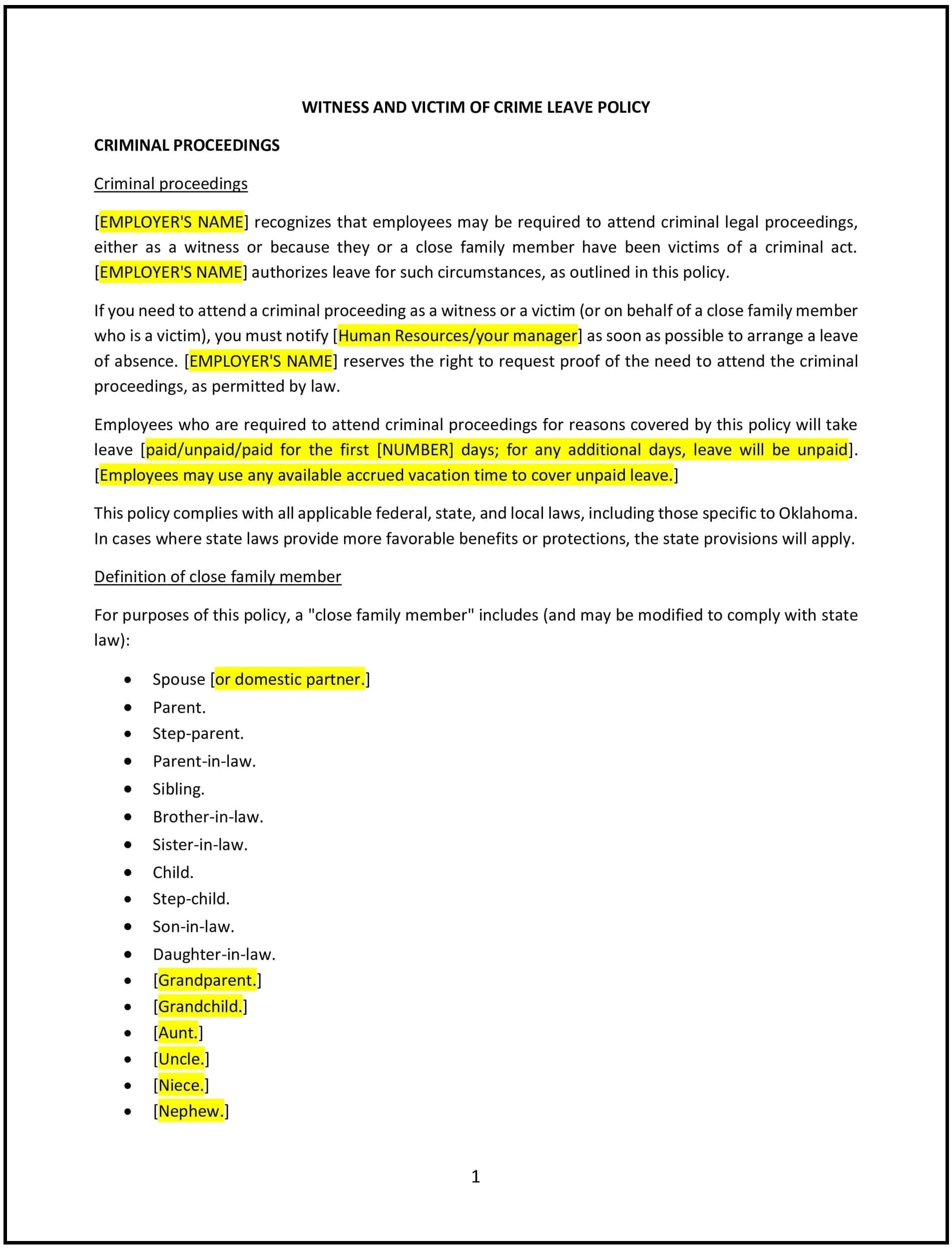Witness and victim of crime leave policy (Oklahoma): Free template
Got contracts to review? While you're here for policies, let Cobrief make contract review effortless—start your free review now.

Customize this template for free
Witness and victim of crime leave policy (Oklahoma)
This witness and victim of crime leave policy is designed to help Oklahoma businesses establish guidelines for providing leave to employees who are victims of crimes or who are required to participate in legal proceedings as witnesses. The policy outlines eligibility, leave request procedures, and protections to support employees while minimizing workplace disruptions.
By implementing this policy, businesses can support employees dealing with legal matters while maintaining workplace efficiency and legal compliance.
How to use this witness and victim of crime leave policy (Oklahoma)
- Define eligibility: Specify which employees qualify for leave, including victims of crimes, witnesses subpoenaed for court proceedings, and employees assisting law enforcement.
- Outline leave request procedures: Require employees to notify HR or management as soon as possible and provide necessary documentation.
- Address leave duration: Define how much leave is allowed and whether it is paid or unpaid.
- Prohibit retaliation: Ensure employees are protected from adverse employment actions for taking leave under this policy.
- Establish documentation requirements: Specify acceptable proof of legal obligations, such as court notices or subpoenas.
- Provide confidentiality protections: Maintain employee privacy regarding their involvement in legal matters.
- Review regularly: Update the policy based on Oklahoma state laws and business needs.
Benefits of using this witness and victim of crime leave policy (Oklahoma)
Implementing this policy provides several advantages for Oklahoma businesses:
- Supports employees during legal proceedings: Allows employees to participate in court matters without job-related concerns.
- Reduces workplace disruptions: Establishes clear procedures for managing employee absences.
- Strengthens legal protections: Helps businesses comply with state and federal regulations on victim and witness rights.
- Encourages employee trust: Demonstrates business commitment to supporting employees during difficult situations.
- Reflects Oklahoma-specific legal requirements: Aligns with state laws governing employee leave for legal proceedings.
Tips for using this witness and victim of crime leave policy (Oklahoma)
- Communicate leave procedures clearly: Ensure employees understand how to request leave and what documentation is required.
- Support employees dealing with legal matters: Provide resources or employee assistance programs (EAPs) if available.
- Ensure managers are trained on leave policies: Educate supervisors on employee rights regarding witness and victim leave.
- Maintain confidentiality: Protect employees’ privacy regarding their involvement in legal cases.
- Adjust as needed: Update the policy based on changes in Oklahoma state law or workplace needs.